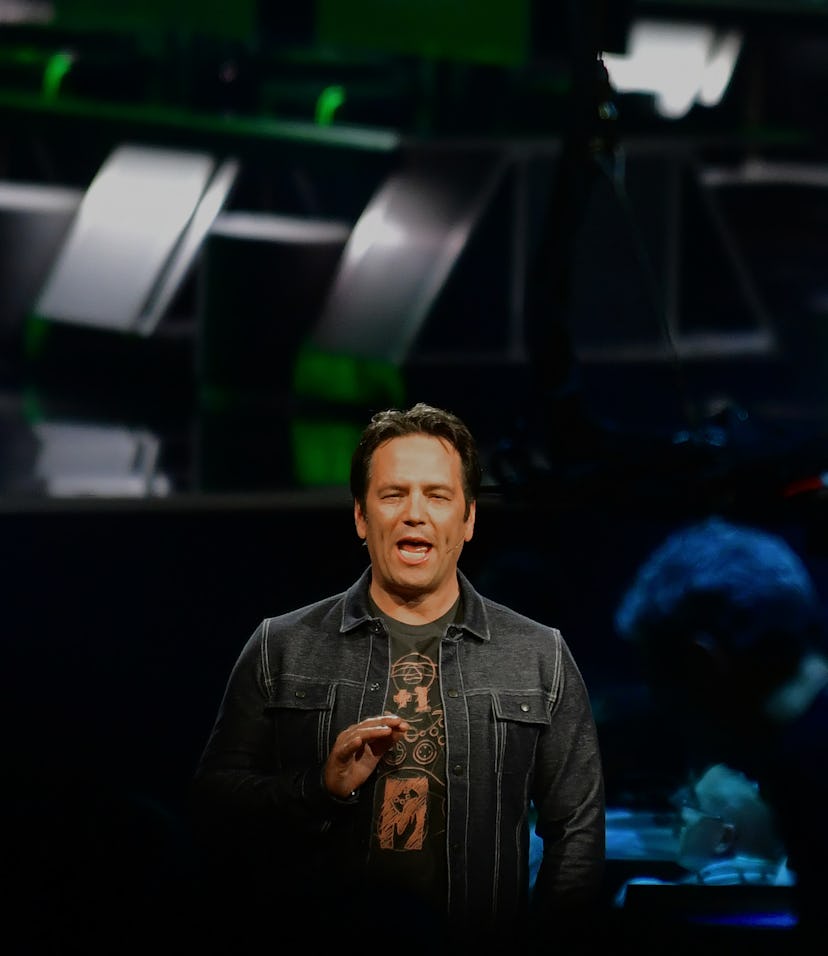Gaming
Microsoft intends to buy more game studios following Bethesda acquisition
The future is subscription gaming, and that means Microsoft needs games.

Microsoft is plowing full steam ahead with its Game Pass subscription service, and that means the company needs a steady stream of new games to keep you coming back — or else it'll end up with a sad looking catalog like Google's Stadia. Unsurprisingly, the company's head of Xbox, Phil Spencer, suggested at Twitch's Glitchcon event today that its recent acquisition of ZeniMax/Bethesda won't be its last.
"In terms of continuing to invest in new studios and new games and new content, absolutely we have to do that," Spencer said. "It's important that we continue to build out the library of games that are available on Xbox. We'll double the size of our studios organization when we add Bethesda, and we're going to continue to invest in great games so that people can find their next favorite game on our platform."
Long play — Microsoft today owns a host of studios including Doom developer id Software and MachineGames, the creator of Wolfenstein, but the $7.5 billion purchase of Bethesda is by far its largest to date. The deal is expected to close early next year.
The promise with Game Pass is that all of Microsoft's first-party titles are available on the service from day one. Subscribers pay $15 a month and gain access to the full catalog and can download or stream them over the cloud. "The great thing is, those games will become part of Game Pass on the day that they launch, which I think creates more opportunity for people to go play," Spencer said of Bethesda's upcoming releases, including GhostWire: Tokyo and Deathloop.
Microsoft has been more open in recent years, adding support for cross-play with the PlayStation and making Minecraft available in PlayStation VR. But with Game Pass it's betting on a more Netflix-esque business model that suggests it might reserve more for its owned and operated service.
Microsoft has always made its money in gaming off the games themselves, not the consoles. If it can bring in a larger base of customers who pay a monthly recurring fee until the end of time, it stands to make more money than it does today on the plateaued market willing to shell out $300 for a console and $60 for each game. The company needs games to entice people, however, and the overarching sentiment is that Microsoft lost out to Sony in the previous console generation because the PlayStation 4 had a stronger lineup of exclusives. Outright buying studios can resolve that issue.
Only time will tell — Unfortunately, Phil Spencer has been vague about whether Microsoft intends to make some or all games exclusives to Xbox. Upcoming Bethesda games that have been announced for the PlayStation 5 are still going to be released for the console. And Microsoft's huge investment in the developer means it'll want to get that money back eventually — ending sales on the PlayStation 5 and Nintendo Switch would be leaving a lot of money on the table in the short term.
Perhaps buying studios is insurance to prevent Sony from doing it first and locking the company out of popular games. So long as you can play on Microsoft platforms, that's all that matters for now, even if they're also available on PlayStation (where Microsoft would earn royalties). Microsoft could switch to a model of timed exclusives, or just make games perform better in the Xbox ecosystem to encourage Game Pass subscriptions. But Spencer has hedged by saying future titles don't "need" to be available on PS5 without elaborating. By purchasing studios behind popular games, Microsoft at least has options, even if it's not sure the strategy yet.